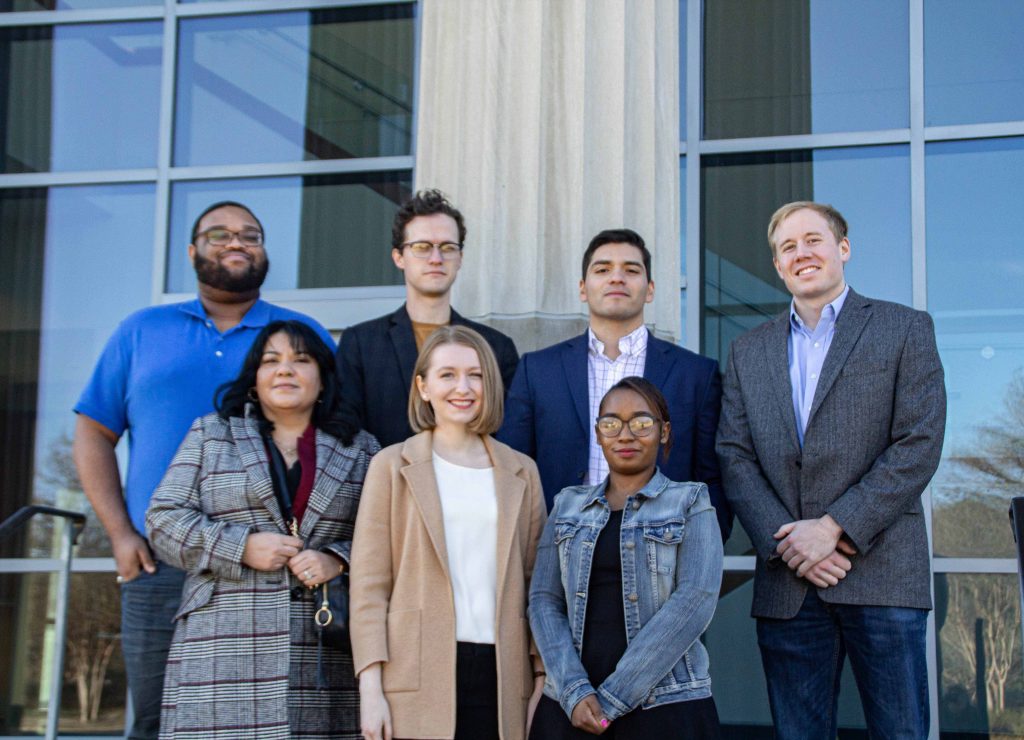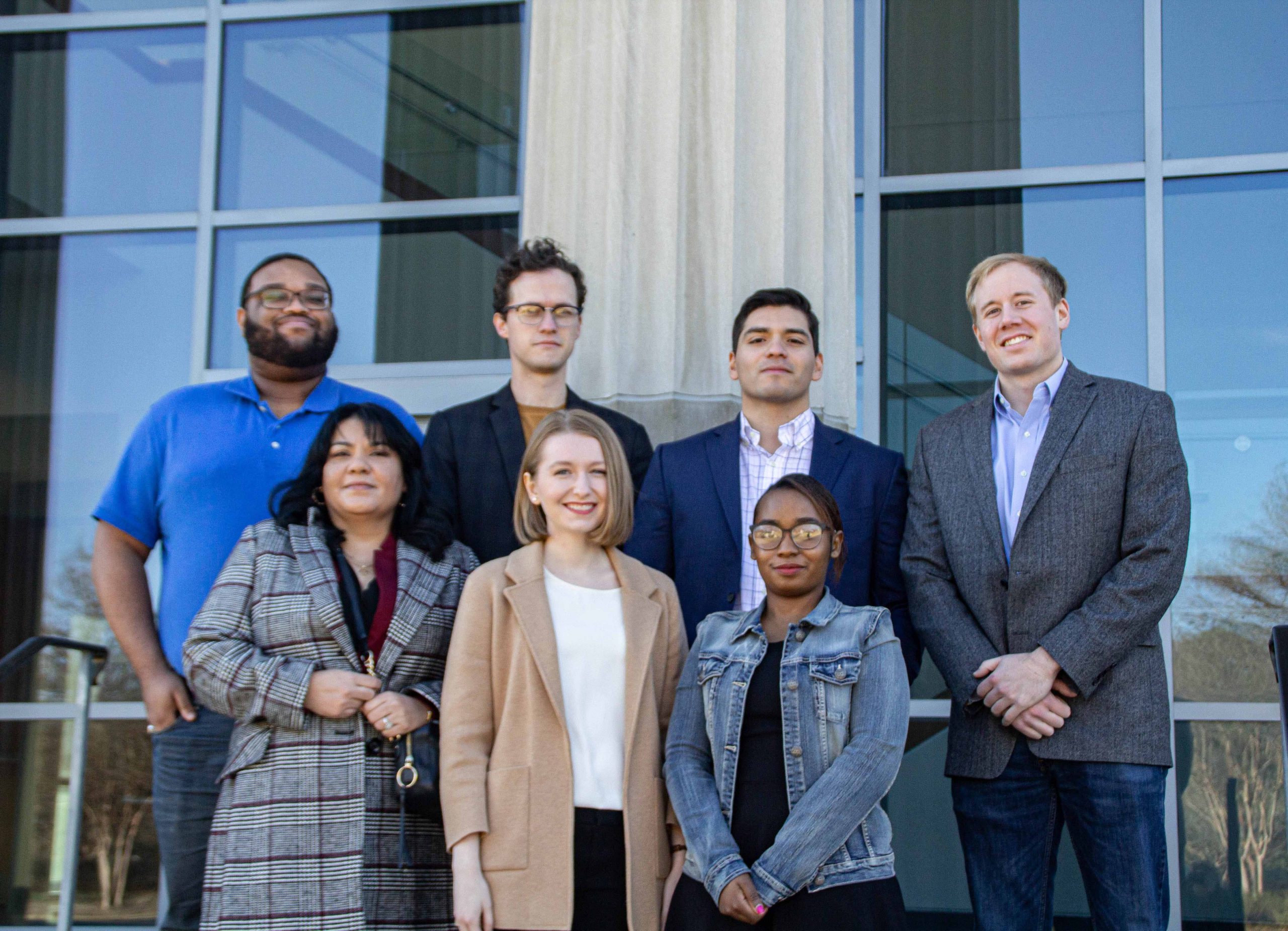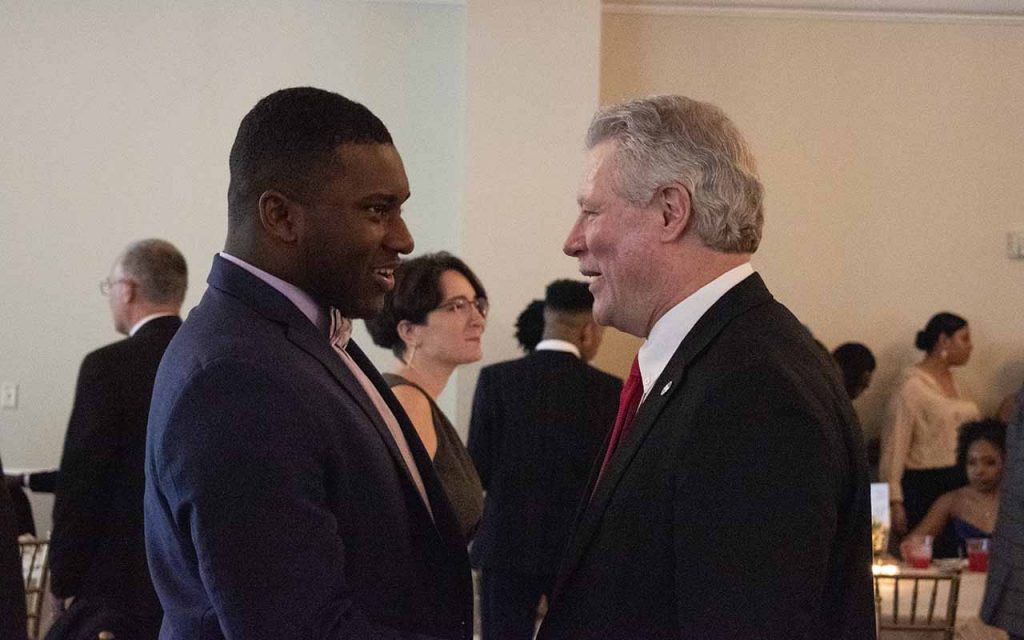
Six months after the largest Immigration and Customs Enforcement (ICE) raid in United States history occurred in central Mississippi, the University of Mississippi’s MacArthur Justice Center is leading efforts to help detainees and their families handle the aftermath. In what became a record-setting operation carried out on Aug. 7, immigration officials detained 680 individuals working in seven different food processing plants surrounding the Jackson area.
Established in 2014, the MacArthur Justice Center is a clinic within the university’s law school that advocates for human rights and social justice through litigation. Every year, center director Cliff Johnson hires students to learn from this advocacy work and gain legal experience.
As soon as news of the raids broke, the limited practice student attorneys immediately began providing legal assistance to detained immigrants, many of whom have been living in the United States for decades.
“We do interviews with those who have been detained to see if they have any legal defenses to stay in the United States and how best we can serve them,” Mercy Figueroa, a second-year law student, said. “More or less, what we’re doing is trying to get them out on bail, trying to see if we can prepare a defense (and) trying to see if they have an asylum claim.”
Since August, the clinic raised more than $750,000 in donations to get bail bonds for defendants, which has allowed for many of them to be released. Still, the students working in the clinic said funding is still a major problem.
“Most bond amounts are in the tens of thousands of dollars for these people, and if you have a million dollars, that runs out pretty quickly,” Carson Phillips, a third-year law student, said. “A lot of America — and even Mississippi — has forgotten about the raids, forgotten that they happened, and these people, for the most part, are still being detained.”
Figueroa said she had seen bail set as high as $15,000, an amount of money that most of the people who were detained do not have.
Apart from providing detainees with bail money, the clinic also uses donations to help pay for detainees’ commissary deposits, which they can use for pay phones and at commissary stores for food in the detention facilities.
The MacArthur Justice Center has also helped create a hotline for those affected by the raids. When family members call, they can request anything from legal counsel to toiletries.
“There are still a lot of people who are waiting on their bonds, or they’ve received their bond and can’t pay it,” Kade Elison, a first-year law student, said. “These people are still in limbo, and they still need help, but the funds just aren’t there.”
Who they represent
The MacArthur Justice Center has taken on new cases in aid of detainees since the second week of August — many of which are still unresolved — and the names of the clients were not disclosed because of the attorneys’ duty of confidentiality.
Though Figueroa, a native Spanish speaker from Cuba, has worked as a translator on several cases, the story of one detained woman who is now seeking asylum impacted her the most.
“(I interviewed) a mother about her 16-year-old daughter who had been raped in Guatemala. It was part of the reason for their asylum claim,” Figueroa said.
Over the course of her interview with the mother, Figueroa said she realized the burden of the language barriers that have complicated many of the immigration cases in Mississippi. The mother of the woman who had been detained only spoke the Guatemalan dialect Mam, so as one attorney spoke English, Figueroa translated to Spanish and another family member then translated to Mam. Figueroa said this challenge only emphasized the already-existing weight of the situation.
“Just hearing the pain in the inflection of her voice — pain is something that is universal,” she said. “You don’t necessarily have to speak their language to see that somebody is in anguish.”
The mother and daughter have not yet been granted asylum.
“Conditions in Guatemala are really terrible,” Charity Karanja, a second-year law student, said.
Karanja began her work with the MacArthur Justice Center in January, and the first case she was assigned — alongside fellow second-year student Kaitlin Bethay — is that of another Guatemalan mother who was detained in the August ICE raids.
“She is facing persecution in her hometown. We’ve been researching the legal avenues to help her and make sure she can stay here where it’s safe for her,” Bethay said.
The woman and her son, who is disabled, escaped their small town in Guatemala after members of their community repeatedly attacked her for being an indigenous woman.
“(If she gets deported), she’s going back to a community that persecuted her. The people that attacked her are still there,” Karanja said. “They know where she lived and where she will have to go back to.”
The woman and her son have lived in the United States for just under ten years, and Karanja said that if the family had been present in the country for several more months, the woman would be eligible for cancellation of removal — a provision of the Immigration and Nationality Act that allows some immigrants in removal proceedings to apply to have the proceedings terminated.
“We hear about the raids on the news, and we tend to think of them as a group — the people who immigrate here — but working on this case so closely with someone affected by the raids has made it so personal,” Bethay said. “You get to see the individual stories and individual people with legitimate reasons for being here.”
The community impact
The law students working with the MacArthur Justice Center said they have been astonished by the widespread influence that the August raids are having on the state, even six months after the initial mass-detainment.
Philllips, a third-year student who started work with the clinic in August, said one of the biggest problems following the raids was a lack of communication provided to the detainees.
The center assigned him to the case of four brothers who had been detained in the Mississippi poultry plants and then transferred to a prison in Jonesboro, Louisiana. The brothers did not have any other family in the country, so they did not have anyone to put money in their commissary accounts to make phone calls. Phillips said this was not a unique situation.
Figueroa said many of the people she interviewed told her outrageous rumors they had heard inside of the detainment facilities.
“A lot of people thought they were going to be detained indefinitely, so they were pleading guilty just so they could go back home,” she said. “It was just a lack of access and a lack of information that made a lot of people return to their home countries who had families, had homes (and) had a life here.”
Figueroa is a Cuban veteran of the U.S. Army, and she said the raids caused her to reconsider returning to law school in Mississippi. After working on numerous immigration cases in the state, she said she has learned how to better defend herself as a citizen.
“Even though I’m an American citizen, even though I’m an army veteran, I got my passport, and I carry it with me at all times,” she said. “It affected all of the Hispanics in the state of Mississippi who are here legally — the fear of not knowing what’s going to happen to us and how we’re going to be received by the community now.”
Brandon Wilson, a third-year student who works alongside Figueroa, said the raids changed the way America views immigration in the state.
“I don’t think many people think of Mississippi as being such a place where a lot of immigration and immigration reforms happen, but after the raids last August, people started looking at Mississippi as an important factor,” Wilson said. “There are certain people in Mississippi and with the MacArthur Justice Center who are making a concerted effort to make some sort of change.”
The center will continue to accept immigration cases, and Johnson said he will continue trying to bring the state together to help the immigrants whom ICE targeted.
Anne Margaret Foster and Anne Florence Brown contributed reporting to this article.














